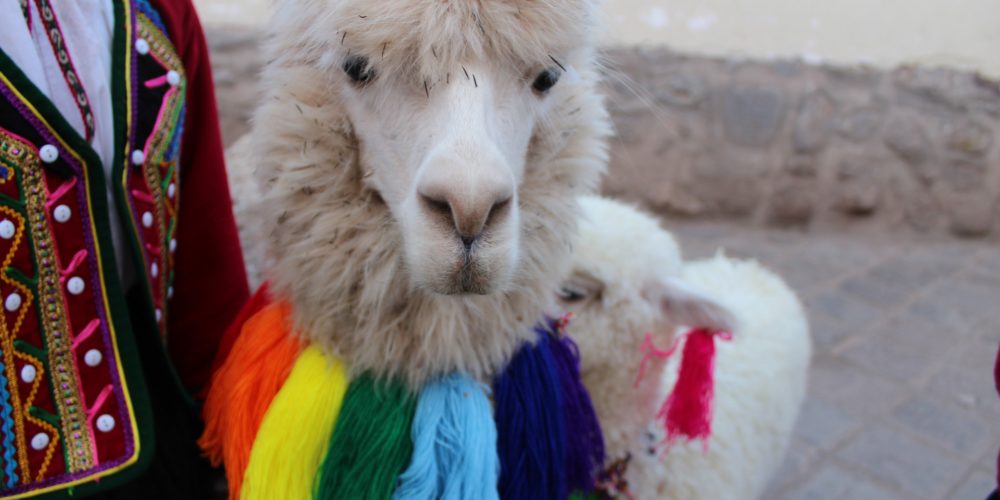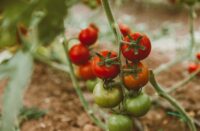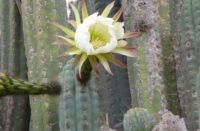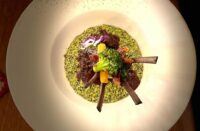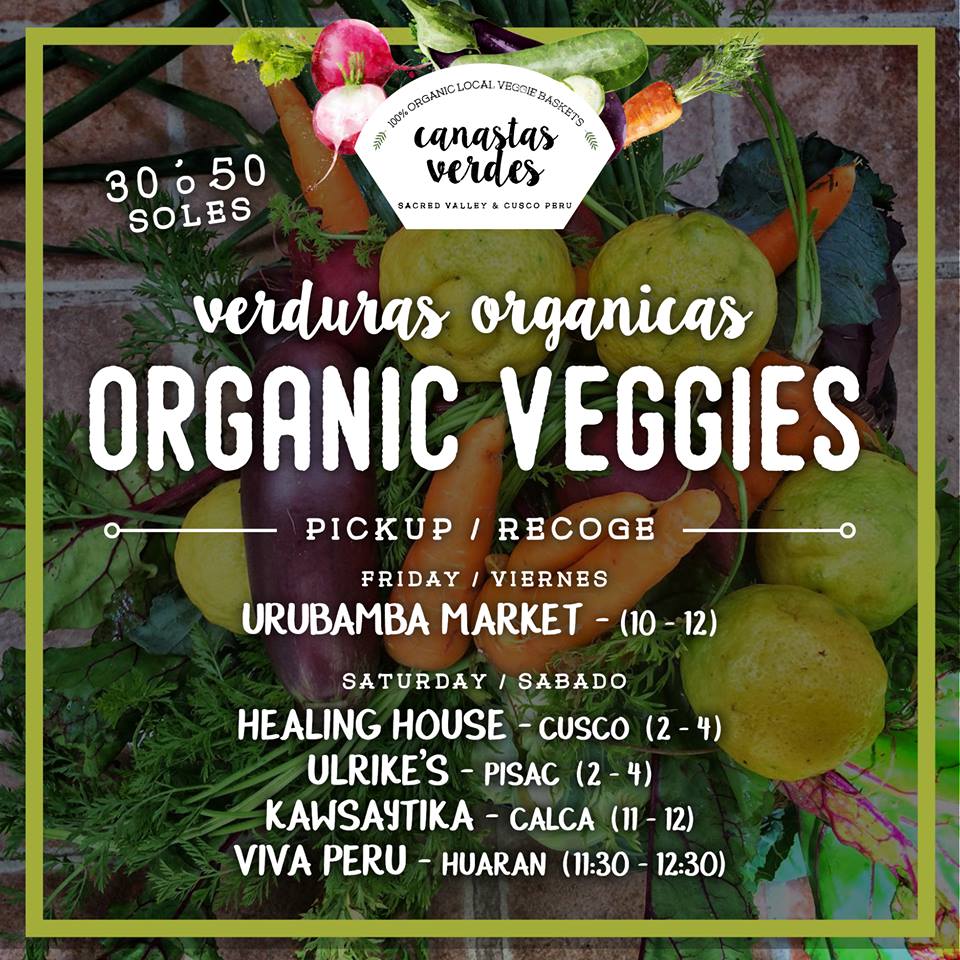Dana Blair of Pichinku is an entrepreneur making a difference to Andean communities
By Chere Di Boscio
Peru is known for its food, its ruins, and its gorgeous alpaca yarns. Unfortunately, however, you’ll increasingly find Chinese-made textiles cluttering the markets and confusing consumers. These fake alpaca throws, blankets and ponchos are either made of 100% acrylic, or are an acrylic/alpaca blend.
But if you want the real deal – made with natural dyes, no less – Pichinku is the place to shop.
It was founded by Dana Blair, an American native. She and three local sisters, Angela, Santusa and Leonarda – have worked together since 2013, creating naturally dyed textiles and yarn. They come from very different worlds, but have found communion and friendship in their shared passion for preserving artisanal crafts in Peru. Combined, the Pichinku girls have 50+ years of experience working with natural fibres.
I visited her studio in a stunning colonial house in Calca, and wanted to learn more about her story. I hope you find it as interesting as I did!
Meet Dana Blair – Founder of Pichinku
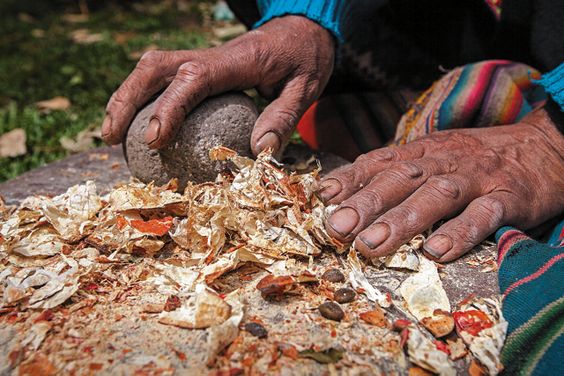
What brought you to Cusco in the first place?
I actually first visited Cusco in 2012 after finishing an archaeology internship in Huaraz, then enjoying a few months backpacking and exploring South America. On that trip, I couldn’t even afford to go to Machu Picchu! But I remember feeling captivated by the imperial city. For an Anthropologist, experiencing the culture, color, food, etc. etc. is intoxicating.
Not long after traveling back to Pittsburgh, I happened upon a job listing at a nonprofit textile organization in Cusco. Not at all thinking that I’d get it, I applied. And two months later was living here. I started work at Threads of Peru the very same day that I arrived and for a long while after, still couldn’t believe that I had been offered such a life changing opportunity.
Why did you stay?
A combination of things really!
I absolutely loved my work, had a truly incredible team and felt that I was really applying my studies in the way that I’d dreamed of. We traveled all over the Andes, working hand in hand with a network of 150+ artisans, the majority of whom were women. I saw that even at the beginning of my career, I was making a difference. And I didn’t think that anything quite like it would be available to me back in the US.
Then I fell in love with my best friend and soon-to-be husband! Over time, with the twists and turns of our life together in Cusco, which included building a house, building our businesses, etc. etc. I settled in to the idea of staying here long term. I travel often to visit my family and feel that despite “missing” a lot of things happening there, that I’m living the best of both worlds.
How did you become interested in yarn?
My mom is a very talented seamstress but hasn’t ever picked up knitting needles or a crochet hook (that I know of). I had only played around with the very basics of knitting in high school. In other words, yarn didn’t really play any role in my life until Peru. And then I was surrounded. Our office storage at Threads of Peru was all yarn. I was learning about raw fiber and hand spinning on drop spindles. About the huge fiber industries in the Andes. Again, as an Anthropologist, it was impossible not to be interested in something that is such an invaluable part of culture here.
What about natural dyes?
Thanks to my work with textiles, I learned a lot about natural dyes from the artisan cooperatives of Threads of Peru. Same as most newbies to natural dyes, I couldn’t believe the vibrant tones coming out of their little clay pots. On an open flame too! All of the colors had a tone dimensionality that I’d never seen in synthetic or industrial dyes.
And I was very drawn to the colors always changing, coming out darker or lighter depending on the season, strength of the material, even the water composition. I fell in love with the unreliability of working with plants. I thought, and still do think, of it as being more human and intimate than the massive scale and predictability of retail production that I’d been brought up with.
What do you say to strict vegans who say such fibres are ‘cruel’?
I say that we need to do our research and not cast blanket judgements on the protein fiber industry. I know that there are less reputable companies whose practices should be questioned, even distrusted. But also believe that there are many, like our suppliers, that treat fiber-giving animals with respect, and are committed to transparency and sustainability.
How did you meet the women you work with?
Angela, Santusa and Leonarda were members of one of the artisan cooperatives that I was introduced to, and worked with, for four years here in Cusco before Pichinku. I felt drawn to them in the beginning because of their insane talent for weaving and industrious attitudes. We communicated well despite the cultural and language differences. They welcomed me into their homes like family. When I started to pull together the bits and pieces of ideas that would become Pichinku, I knew that they were the women up to the task.
How does Pichinku benefit communities in the Andes?
My main inspiration for Pichinku was to find a product with a larger, more accessible market. I could write a book on the cultural value of textiles but they’re difficult to sell. It goes without saying that the work and artisanship that goes into each piece dictates a higher price point than most buyers can afford.
On the other hand, appealing to increased interest in natural products and the worldwide boom of “making”, naturally dyed yarn was an unexplored opportunity. Pichinku took just one piece of the textile process and scaled it up. For artisan traditions to continue, they need to be economically viable. We’re making a comfortable living for ourselves while preserving practices that the girls, and their home communities, have always known.
Although the economic benefit of Pichinku is focused mainly on our team, we aspire to renew cultural value in the fiber arts and inspire other artisans to continue practicing. We’ve offered natural dye workshops to communities, free of charge, to share our techniques. It’s incredible to see their interest and curiosity. That they’re inspired to keep working, experiment and seek out new opportunities.
Was your business affected by Covid at all?
Absolutely! At the beginning of quarantine, between March and May, I was very conscious of the possibility of failure. There was no way for us to work at the time. I was stuck home, not able to come to the workshop, and the girls returned to their houses farther up in the mountains to wait it out. Too many people losing their jobs, world economies slowing to a crawl. I made myself think realistically and recognize that Pichinku might not make it through COVID.
But that didn’t mean that I would go down without a fight. I have the best team in the world (biased, I know). When we made it back to work in May, we had a good long talk, squared ourselves for a tough year and pushed harder than ever before. And we’ve been flat out with production, barely keeping up, since July.
A lot of that has to do with how much interest in natural products has grown. Not just natural, but handmade, artisanal, local and woman-made. Pichinku ticks all those boxes. Orders continued coming in from our clients, we put together a few collaborations that were really well received and amped up our social media presence. Truth be told, we’ve grown this year. And are inexplicably grateful.
Tell us a bit about the ethics of Pichinku
Pichinku production is free of any form of discrimination, harassment or abuse, and all artisan partners work of their own free will. Production decisions are made in collaboration with artisans, with mutual respect for conflicting time or personal obligations, and without fear of recrimination.
Pichinku artisan partners are paid in a timely manner at above the statutory minimum wage, and are assisted in the proper registration of payments with the SUNAT (Peruvian tax and revenue body). No pay deductions based on quality criteria nor limitations on pursuing additional income-making opportunities are imposed on artisans.
Pichinku fibers are sourced exclusively from cruelty free facilities and dyed using botanical materials that are locally sourced in sustainable quantities. Artisan production practices energy conservation, natural resource conservation, solid waste disposal and wastewater remediation always and whenever possible.
Where do you see the future of Merino, silk and alpaca fibers?
We need to be confident of the provenance of the products that we’re purchasing. And that’s been a huge issue with large scale animal husbandry e.g. too much smoke and mirrors. I personally wouldn’t feel good about wearing merino or alpaca if I suspected that there was malpractice or environmental damage involved in the process. I see protein fibers are going to maintain the strength of their market position and gain wider acceptance thanks to the push for sustainable and transparent production.
